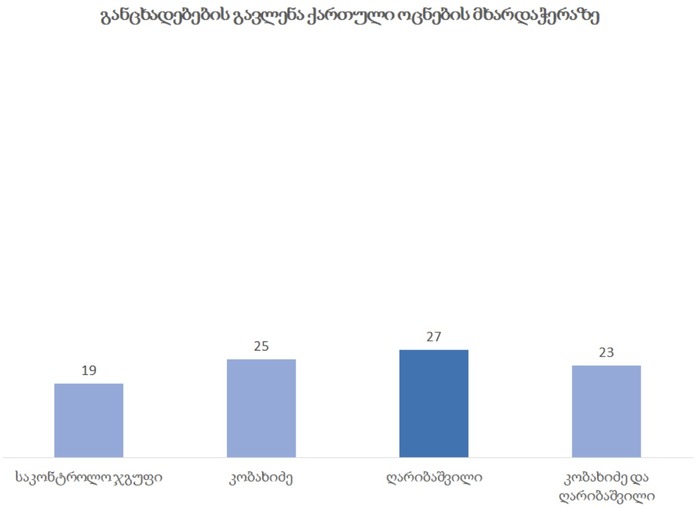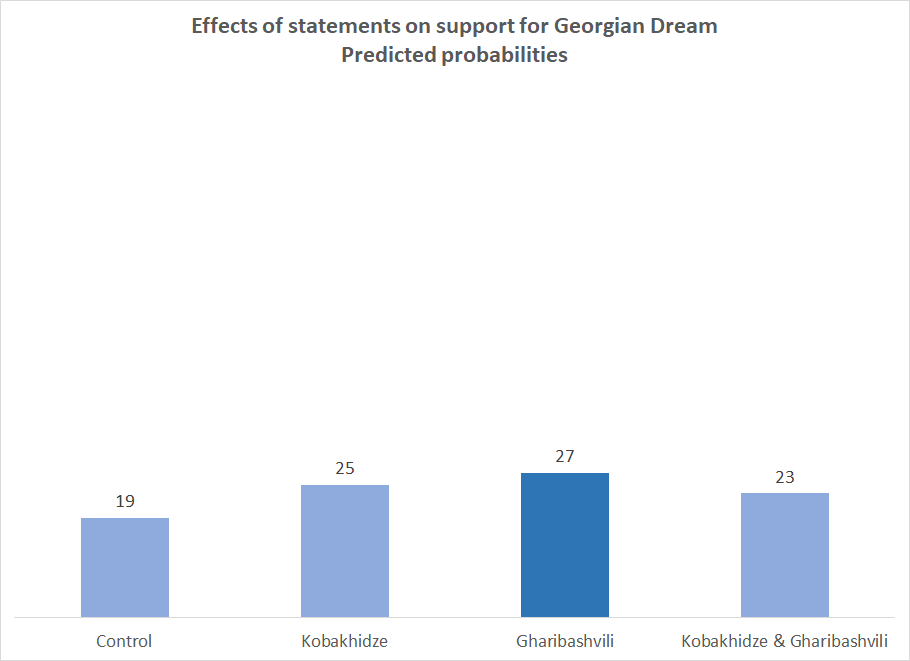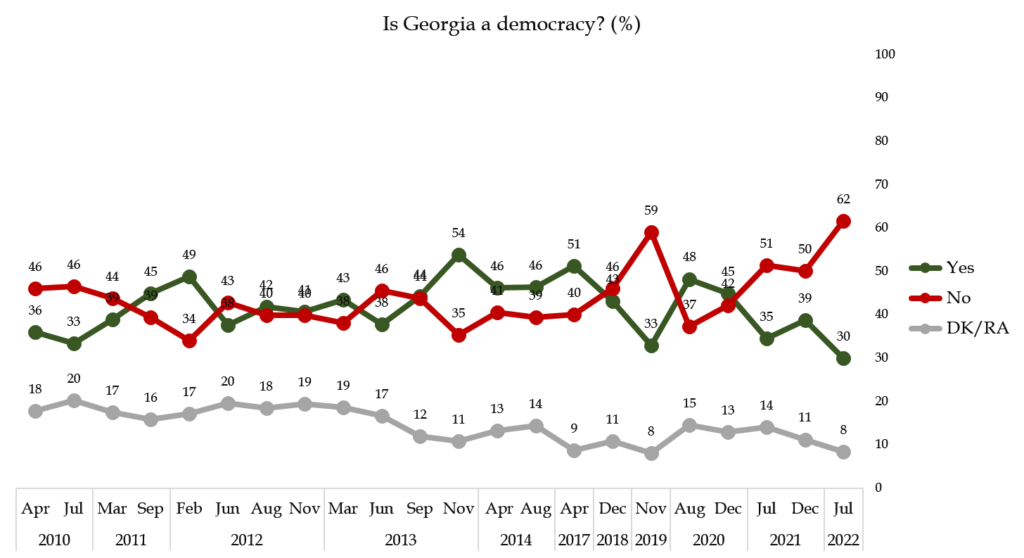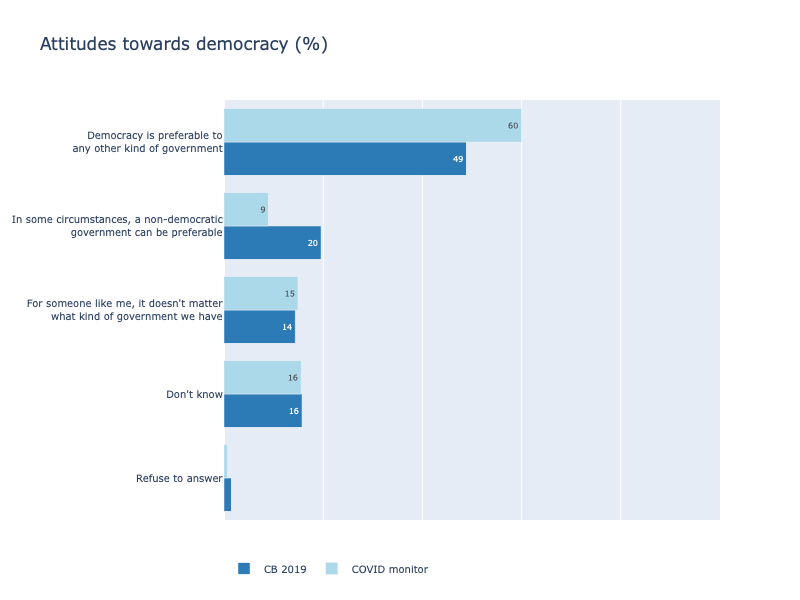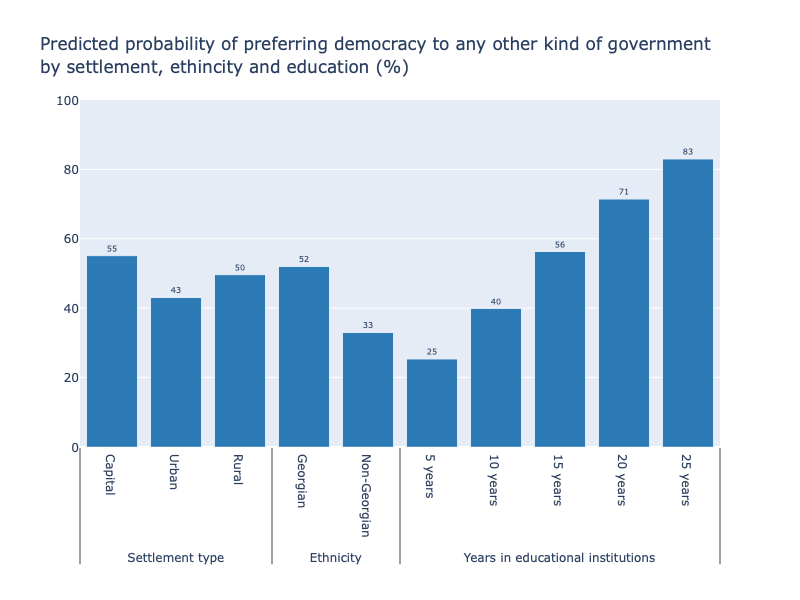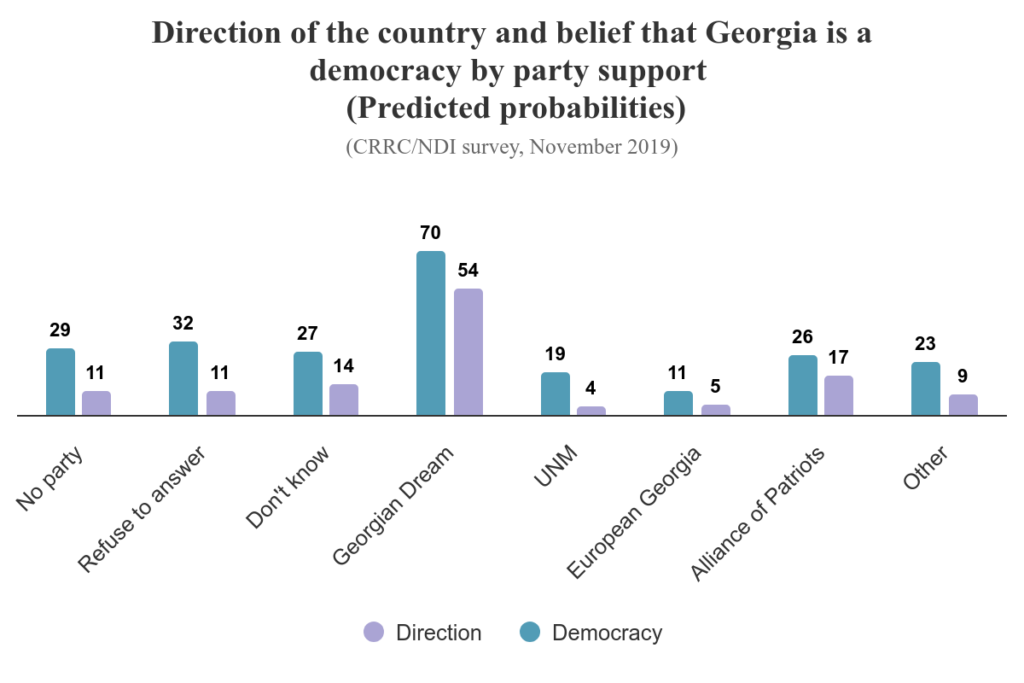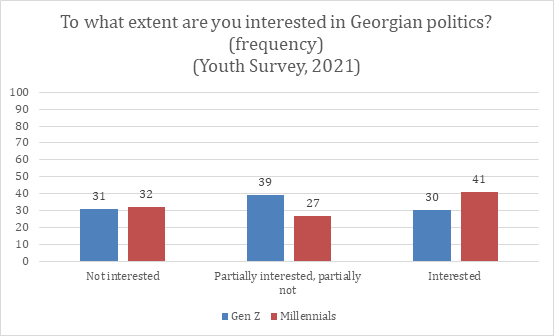
Public discourse in Georgia has in recent months raised the idea that Georgia’s young people, and particularly Gen Z, are politically interested and active, particularly following the March foreign agent protests. CRRC data suggests that a majority of 18-29-year-old Georgians…
